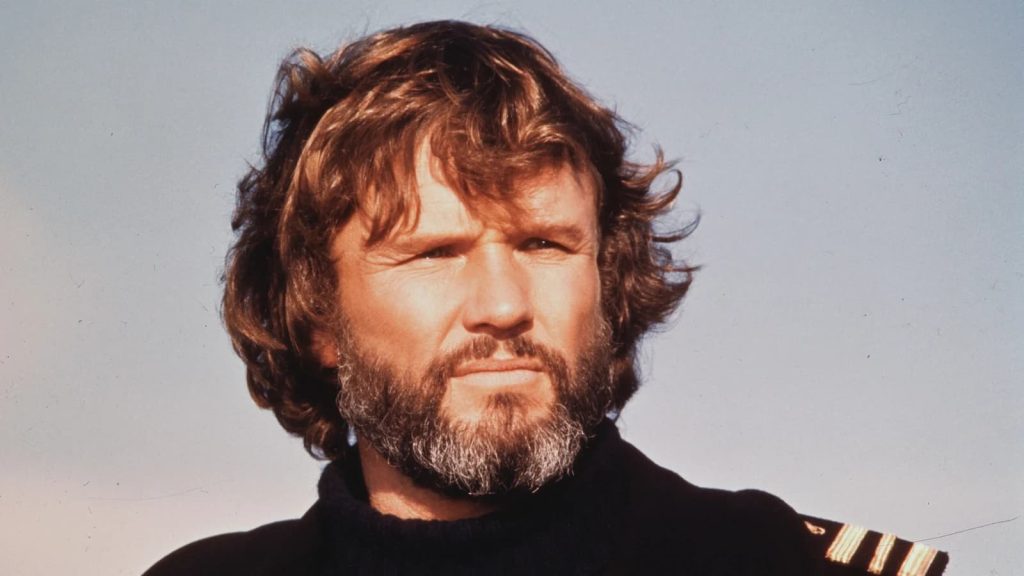
Kris Kristofferson – “Me and Bobby McGee”: A Timeless Road Song of Freedom and Heartbreak
Few songs have the enduring legacy of “Me and Bobby McGee,” a track that has come to define the artistry of Kris Kristofferson and remains one of the most iconic songs in American music history. Written by Kristofferson and originally released in 1969, the song gained widespread fame when it was covered by Janis Joplin in 1971, becoming her posthumous number one hit on the Billboard Hot 100. While Joplin’s version is often the most recognized, it’s Kristofferson’s original composition and his own 1970 recording that provide the heart and soul behind this timeless ballad.
At its core, “Me and Bobby McGee” is a song about freedom, love, and the inevitable loneliness that follows when that freedom is lost. The narrative follows two lovers traveling together, hitchhiking across the country, chasing the kind of carefree, transient life that is so often romanticized in song and story. But as the song unfolds, it becomes clear that the price of freedom is the pain of separation. The line, “Freedom’s just another word for nothing left to lose,” has become one of the most quoted lyrics in music, encapsulating the bittersweet nature of independence—where the open road offers boundless possibilities but also leaves you vulnerable to loss.
The story behind “Me and Bobby McGee” is just as interesting as the song itself. Kristofferson wrote the song at the request of Fred Foster, his producer at Monument Records, who suggested the title and asked him to create a story around it. Originally, Kristofferson envisioned the song as a narrative about a male drifter and his female companion. However, the song’s androgynous lyrics allowed for a wide interpretation, which is why it worked so well for both male and female artists.
Musically, “Me and Bobby McGee” is rooted in country and folk traditions, but its simplicity and storytelling transcend genre. Kristofferson’s own recording, released on his 1970 album Kristofferson, is intimate and raw, with his gravelly voice perfectly capturing the sense of longing and nostalgia in the lyrics. The gentle acoustic guitar strumming and understated arrangement let the story shine, allowing listeners to focus on the emotional journey of the characters. When Janis Joplin recorded her iconic rendition, she brought a new intensity to the song, transforming it into a powerful anthem of heartbreak with her signature bluesy, raspy delivery. Her version reached number one on the Billboard Hot 100 in 1971, forever linking the song to her legacy.
While Joplin’s version may be more widely known, it is Kristofferson’s songwriting that gives the track its timeless appeal. His ability to weave vivid imagery and deep emotion into a simple narrative is what makes “Me and Bobby McGee” so relatable and enduring. The lyrics evoke the joy of love found and the sorrow of love lost, but they also celebrate the freedom that comes with accepting both.
“Me and Bobby McGee” is more than just a song about a journey—it’s a reflection on life itself. The road becomes a metaphor for the unpredictable twists and turns of human experience, where happiness and sadness are often intertwined. The song’s final lines, “I’d trade all my tomorrows for a single yesterday,” speak to the deep yearning for moments that have passed, a sentiment that resonates with anyone who has ever looked back on a fleeting, beautiful time in their life with a sense of both gratitude and loss.
Over five decades later, “Me and Bobby McGee” continues to be celebrated as one of Kris Kristofferson’s greatest contributions to music, a song that has been covered by countless artists and loved by fans of all generations. Its universal themes of love, loss, and freedom ensure that it will remain a staple of American music for years to come.